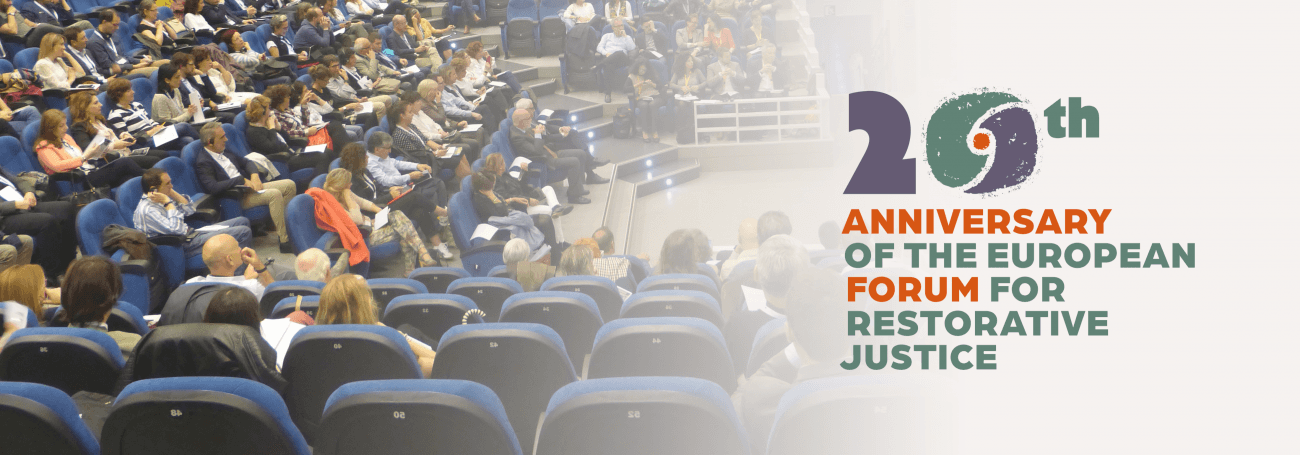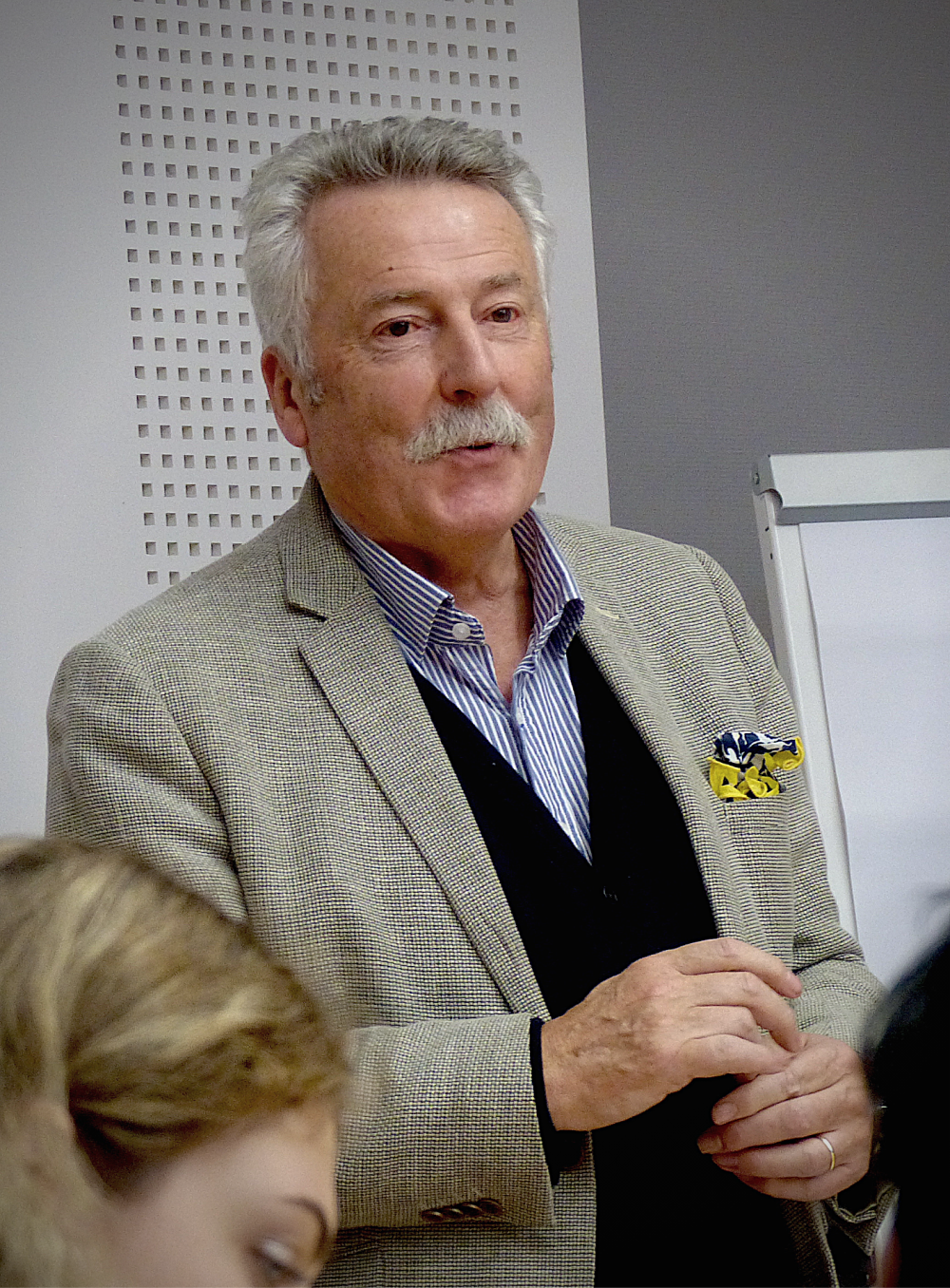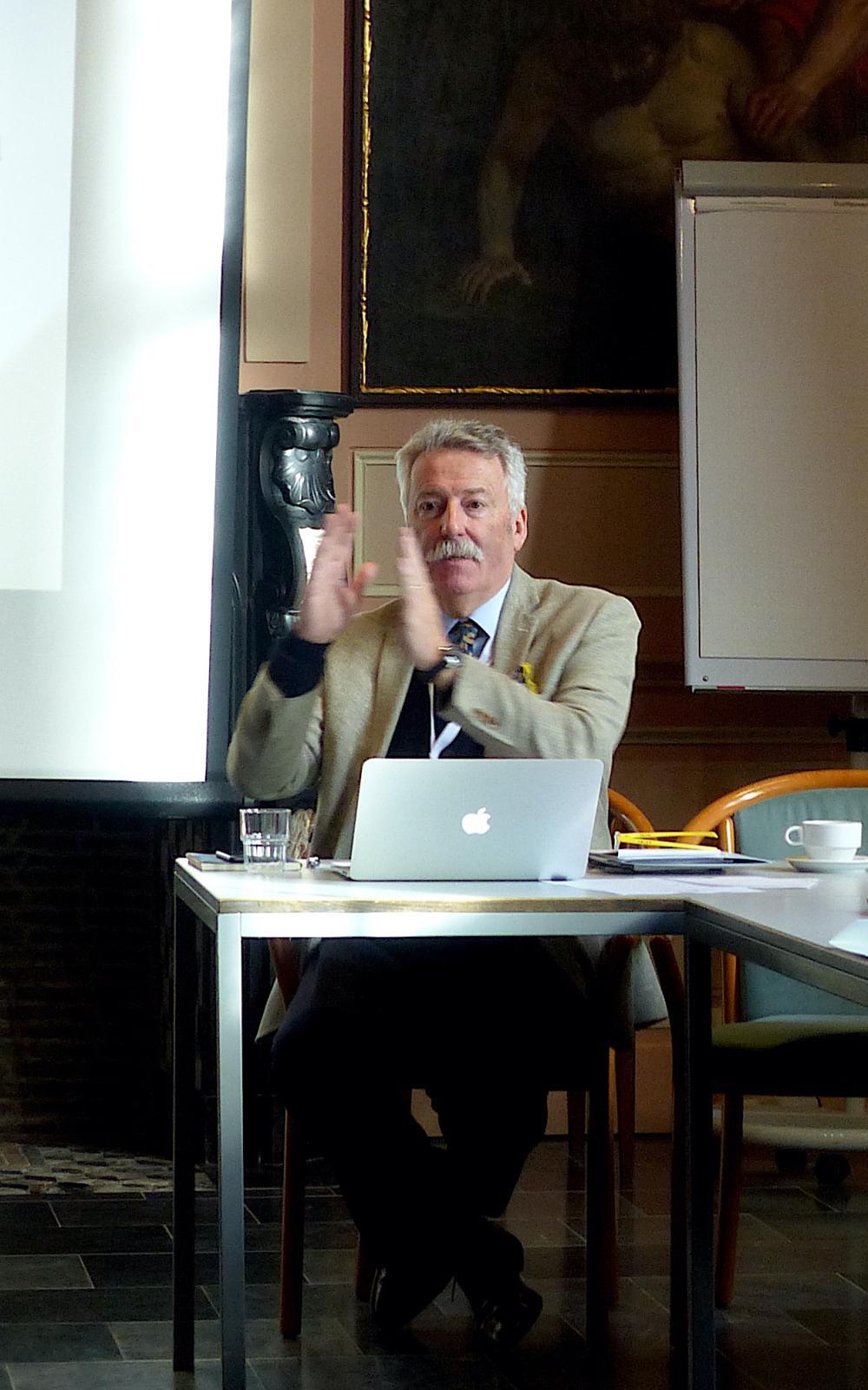

Interview with Tim Chapman
On the challenges and prospects of 20th anniversary year of the European Forum for Restorative Justice
As we are getting more and more busy with the upcoming projects of the new year, we wanted to stop for a moment and ask a couple of key questions from Tim Chapman, the Chair of the European Forum for Restorative Justice's (EFRJ) Board. This will be a special year with our international conference in Sassari (Italy) and the organisation's 20th anniversary celebrations ahead. We were interested what does he identify as key challenges of the year, and what are the main take-aways from the EFRJ's 20 years of experience.
Now, starting a new year I am curious, what do you see as the most significant challenges in the field of restorative justice?
For restorative justice to be seen by the public and governments as both relevant and indispensable to the resolution of many of the social problems facing countries throughout Europe.
What do you think should be the priorities that a network organisation as the European Forum for Restorative Justice (EFRJ) should focus on this year?
Involving, supporting and activating our membership, designing, developing and delivering a curriculum of high-quality learning experiences, to engage actively in contributing to and influencing policies that address the real problems that European people face, to include the critical importance of restorative dialogue, and communicating a narrative of restorative justice that makes sense to people.

This year has a special feature for us: it is the 20th anniversary of the organisation. You mentioned earlier, that we should not merely use the anniversary to celebrate ourselves, but as an opportunity to put important issues in the spotlight. What opportunity does this anniversary mean in the life of the EFRJ?
I believe that the 20th anniversary means that we have come of age. We have spent 20 years developing the field of restorative justice in Europe and we have made great progress. I think that every European country is engaged in implementing restorative justice in some form. We now need to go out into society and engage radically in the reality of the lives of citizens. We need to see and understand the harm and pain experienced by people and offer realistic and effective means of restoration that can undo injustice and alleviate suffering. In other words, it is time to be less inward looking and more engaged in supporting people to establish and maintain just relations with each other.
And what could be the significance of this moment for the restorative movement?
The movement needs to ask itself: How do we offer high quality restorative processes while avoiding becoming another professional elite?
You already have been curating a reflecting and re-evaluating process within the organisation, the Forum 15 Project, which started in the year of the EFRJ’s 15th anniversary. What are the main take-aways from that in your eyes?
Firstly, the process of change is slow and you need to cultivate patience. Secondly, once change is on the agenda, it is amazing how small progressive steps taken by many people generate so much change. Since we began Forum 15, there is a new energy in the Secretariat and in the membership, which has transformed our communications, our engagement in policy development, our conferences, and both our internal relations and our relationships with other organisations such as the European Commission, the Council of Europe, the United Nations Office for Drugs and Crime, and many other European networks in the fields of justice, security and human rights. Our commitment to the value of justice will always mean that we will pay attention to reforming and humanising the criminal justice system. But we increasingly see that justice also applies to the relations between the genders and sexual orientations, between races, between classes, between cultures, between children and adults in families, schools and neighbourhoods and between the economic system and the environment. Injustices in these areas violate the dignity and solidarity of humanity. This opens up the obligation to develop and facilitate new restorative practices.
And if there would be a Forum 20 Project what would be your suggestion, what should that be about?
I would like a new strategy to address the violence and harm caused by injustice in the relations that I have just mentioned. Restorative justice needs to find processes that engage in gender violence, in racism, in the increasing disconnection between people caused by economic inequality, in cultural difference, in raising children to thrive in the Europe of the future and to restore the vitality of our natural environment.

This year is also special for all Europeans, as we commemorate the 75th anniversary of the end of the Second World War, and in May we will also celebrate the 70th anniversary of the „Schuman Declaration”, which is a key moment in the establishment of the community we have today in Europe. The experience of the war, and how our societies reacted on this experience when the fights ended, are often considered as experiences that have defined how we regard communities in Europe and the relations between them. It is also a commonplace, that many of us worry nowadays that our societies have lost their faith in the vision built on humanistic values after the war. What is the responsibility of a person with a restorative background in this sense? Can a restorative experience add something meaningful to this discussion?
For me this is a poignant question. 2020 is also the year that the United Kingdom left the European Union. While I regret this decision, it is important to understand why so many people supported it. For me the responsibility of people, who stand for the restorative values of human dignity, solidarity, justice and truth, is to engage with people who have lost faith in these values and to listen to them with respect and compassion.
And, finally, a semi-personal question: what is your dream for this year?
To feel that I have done enough and that I can relax in Ireland and travel more for pleasure than for work.
Published on 12 February 2020.

